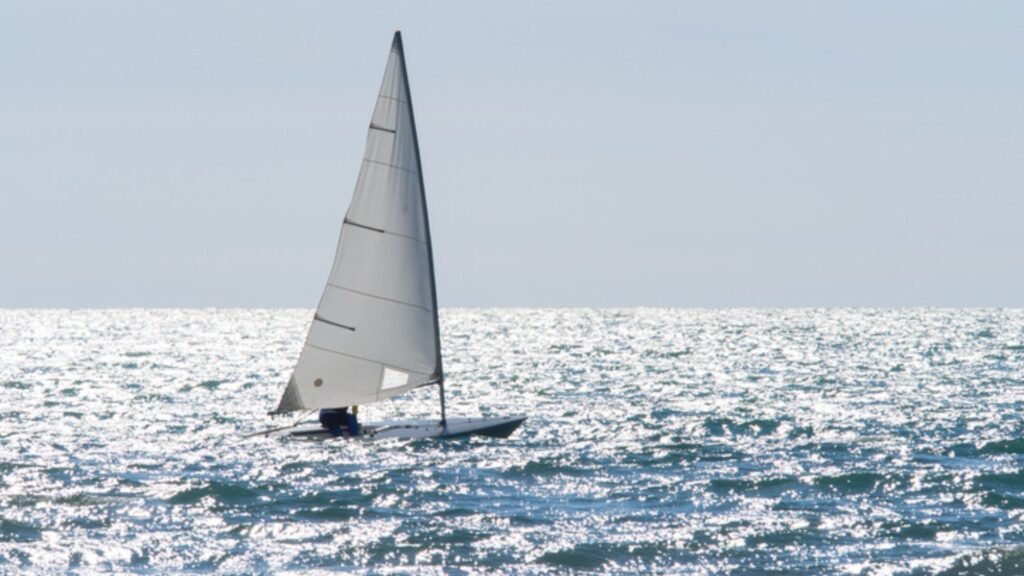Choosing the right sailboat as a beginner can be an exciting yet daunting task. With so many options available, it’s essential to understand your needs and preferences before making a decision. This guide will help you navigate through the key factors to consider when selecting your first sailboat, ensuring you find one that fits your sailing goals and enhances your enjoyment on the water.

Determine Your Sailing Goals
Before diving into the specifics of sailboat types, it’s crucial to clarify your sailing goals. Ask yourself the following questions:
- What type of sailing do you want to do? Consider whether you plan to sail for leisure, racing, or exploring distant shores.
- How often do you plan to sail? Determine if you want to sail regularly or only occasionally, as this may influence the size and type of boat you choose.
- Will you be sailing solo or with a crew? Knowing how many people you plan to sail with will help you decide on the appropriate boat size and layout.
Choose the Right Type of Sailboat
Sailboats come in various types, each designed for different purposes. Here are some common types to consider:
- Day Sailers: Ideal for beginners, daysailers are small, easy to handle, and perfect for short outings. They usually range from 14 to 24 feet and are great for learning the basics of sailing.
- Cruisers: If you plan to spend extended time on the water, consider a cruiser. These boats are larger, equipped with amenities for comfort, and designed for longer voyages. Cruisers typically range from 25 to 50 feet.
- Racing Boats: If you’re interested in competitive sailing, racing boats are designed for speed and performance. They are often more challenging to handle, so consider gaining experience on a different type of boat first.
Consider the Size and Weight
When selecting a sailboat, size, and weight play a significant role in its handling and performance. Here are some factors to keep in mind:
- Length: For beginners, a smaller sailboat (under 25 feet) is generally easier to manage. As you gain experience, you can consider larger boats.
- Weight: Heavier boats tend to be more stable in rough waters, while lighter boats are quicker and more responsive. Choose a weight that matches your sailing conditions and comfort level.
Look for Stability and Ease of Handling
Stability and ease of handling are essential for beginners. Here’s what to look for:
- Keel Type: A boat with a deep keel provides more stability and better performance in heavy winds. A shoal keel offers shallow draft options for navigating in coastal areas.
- Sail Plan: A simple sail plan, such as a sloop (one mast and two sails), is easier to handle than more complex configurations. Avoid boats with multiple sails or complicated rigging until you’re more experienced.
Evaluate the Boat’s Condition
If you’re considering a used sailboat, assessing its condition is vital. Here are some tips:
- Inspect the Hull: Check for cracks, blisters, or any signs of damage on the hull. Look for proper maintenance records if available.
- Examine the Rigging: Ensure that the mast, sails, and rigging are in good condition. Inspect for rust, wear, or frayed lines.
- Test the Interior: Make sure the cabin and storage areas are clean and functional. Consider whether the boat meets your comfort needs.
Set a Realistic Budget
Budgeting is an essential step when choosing a sailboat. Here’s how to approach it:
- Purchase Price: Determine how much you can afford to spend on the boat itself. Consider both new and used options to find the best fit for your budget.
- Maintenance Costs: Factor in ongoing costs such as insurance, docking fees, and maintenance. Regular upkeep is necessary to keep your sailboat in good condition.
- Additional Equipment: Don’t forget to budget for safety gear, sails, and navigation equipment, which are crucial for a successful sailing experience.
Seek Professional Guidance
When in doubt, seek advice from experienced sailors or professionals at local sailing schools. They can provide valuable insights and recommendations based on your specific needs and preferences.
Conclusion
Choosing the perfect sailboat as a beginner requires careful consideration of your sailing goals, the type of boat that suits your needs, and your budget. By understanding the key factors involved in selecting a sailboat, you can make an informed decision that enhances your sailing experience. Whether you opt for a day sailor, cruiser, or racing boat, remember that the journey of learning to sail is just as rewarding as the destination.

